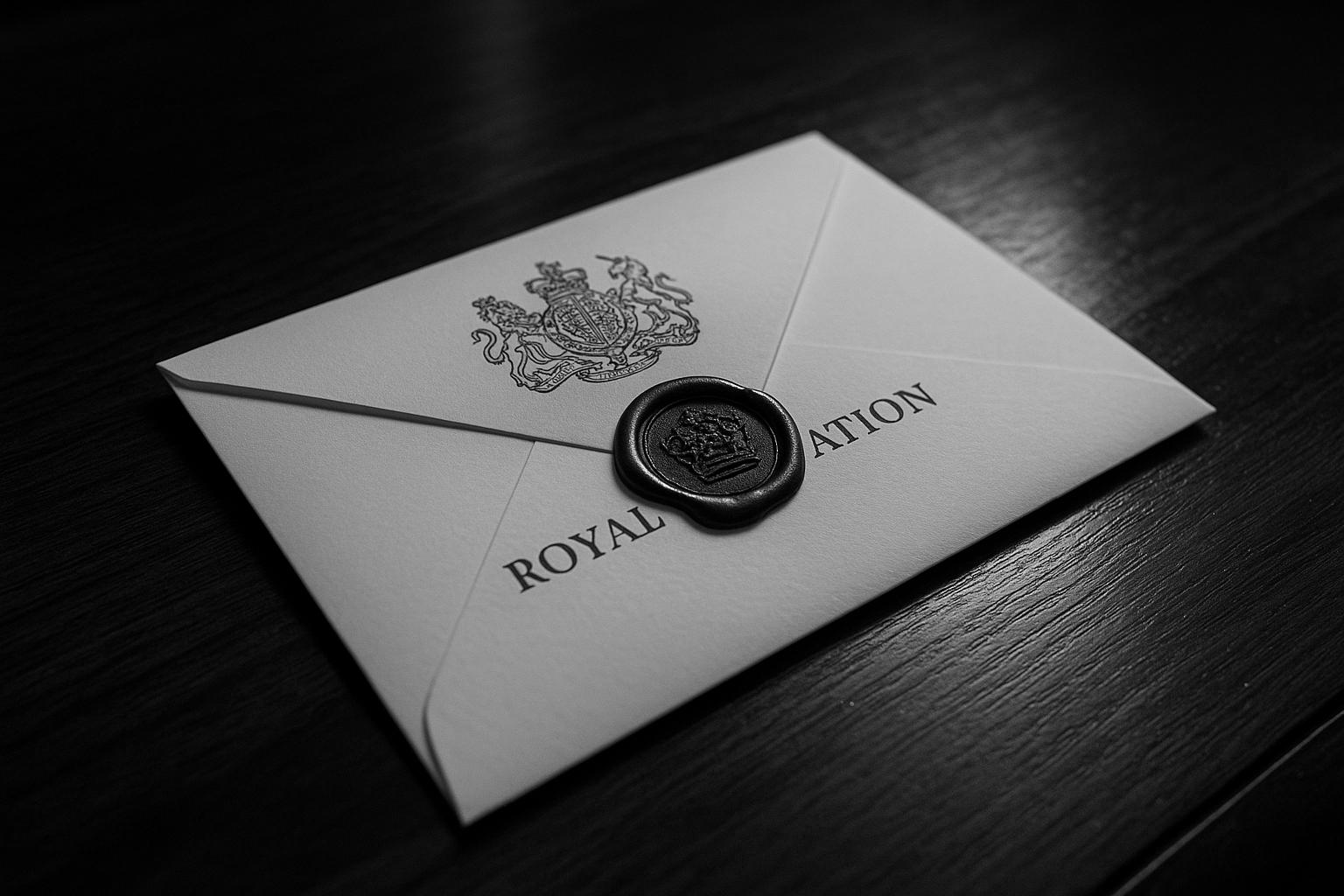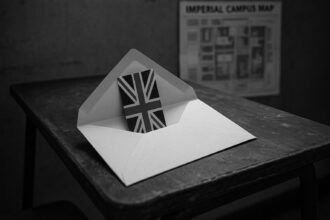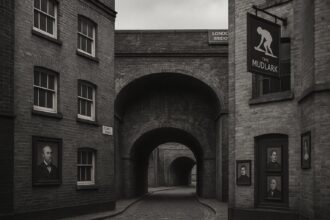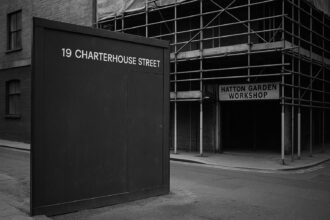The UK government has fast-tracked a full state visit by former US President Donald Trump this September, overriding King Charles III’s preference for a more cautious approach. This decision has sparked diplomatic tensions, notably with Canada, where Trump’s territorial remarks challenge the King’s role as head of state.
Sir Keir Starmer has moved ahead with plans to bring forward a full state visit by former US President Donald Trump to the UK this September, a decision that contrasts with the more cautious approach favoured by King Charles III. While the monarch had hoped for a gradual build-up to a state visit, possibly later in Trump’s second term, Starmer is prioritising diplomatic relations with the US, seemingly eager to capitalise on Trump’s well-known fascination with the British royal family. The formal document initiating the visit was reportedly signed by the King and sent to the White House last week, accelerating arrangements for what is expected to be a “bells and whistles” state occasion.
This shift, however, has generated some tension, particularly because of Trump’s repeated remarks suggesting Canada should become the 51st US state—a stance that has caused diplomatic unease given that King Charles is also the head of state for Canada. The Palace reportedly raised concerns about hosting a lavish state visit for a leader who publicly questions the sovereignty of another realm under the King’s reign. A senior Palace aide is said to have conveyed to government officials that the King was uncomfortable bestowing such an honour while Trump was “impugning his sovereignty” over Canada. A senior government source described Starmer’s public presentation of the King’s invitation letter to Trump at the Oval Office as a “cock-up,” noting the letter was intended as a private voucher for Trump to visit the King informally rather than a formal early state invitation.
Despite these tensions, the UK government, led by Starmer, is pressing ahead, emphasising the strategic importance of solidifying post-Brexit trade and security ties with the US amid an increasingly complex global landscape. Starmer has also dismissed calls to cancel the visit despite criticism from various quarters, underscoring the value of maintaining strong Anglo-American relations, especially as the UK plays a key role in supporting Ukraine in its conflict with Russia.
In Canada, the invitation to Trump has been met with starkly contrasting feelings. Canadian Prime Minister Mark Carney openly criticised the UK’s move, describing it as poorly timed and undermining Canada’s firm stance on its sovereignty. Since Trump’s inauguration in January 2025, his rhetoric about annexing Canada has deeply unsettled Canadians, who have rallied around their government and the monarchy as symbols of national independence. Carney has taken deliberate steps to reinforce Canada’s autonomy, including orchestrating King Charles’s rare and highly symbolic delivery of the Canadian throne speech in Ottawa—a role traditionally held by the governor general. This pageantry was widely viewed as a coded rebuke to Trump’s provocations and an affirmation of Canada’s distinct identity and sovereignty.
King Charles himself has engaged in careful diplomatic messaging. During his visit to Canada, he emphasised Canada’s “unique identity” and sovereignty in a speech that resonated as a direct response to Trump’s territorial suggestions. When opening the Canadian parliament, the King invoked the national anthem, stating, “The True North is indeed strong and free,” reinforcing Canada’s independent status. Yet, despite these affirmations, he is now faced with the delicate task of hosting Trump in the UK, where the full pomp of a state visit is planned, including a banquet at Windsor Castle and various high-profile engagements.
Those close to the King indicate that his role in the forthcoming visit will be carefully managed and that the decision to proceed with a lavish state welcoming was reached in consultation with all parties, including government officials. Scheduling considerations reportedly mean that King Charles will not meet Trump during his visit to his Aberdeenshire golf resort next month, though official sources deny any discord between Buckingham Palace and Downing Street.
The unfolding situation highlights the complex constitutional and diplomatic balancing act King Charles must perform as monarch of multiple realms. While Starmer concentrates on the political and economic benefits of nurturing UK-US relations, the King navigates the symbolic and constitutional challenges of representing Canada’s sovereignty in the face of provocative remarks by the US president he is about to host in an unprecedented second state visit. The episode underscores the monarchy’s unique and stabilising role amid geopolitical uncertainty, with Charles’s stature in Canada appearing enhanced as a symbol of national unity against external pressures.
 Reference Map:
Reference Map:
- Paragraph 1 – [1], [7]
- Paragraph 2 – [1], [6]
- Paragraph 3 – [1], [2], [4]
- Paragraph 4 – [2], [5], [4]
- Paragraph 5 – [1], [3], [5]
- Paragraph 6 – [1], [7], [6], [3], [4]
Source: Noah Wire Services
- https://www.thetimes.com/uk/royal-family/article/starmer-goes-against-the-king-by-bringing-forward-trumps-full-state-visit-lnkx286xp – Please view link – unable to able to access data
- https://www.reuters.com/world/canadian-pm-criticises-uks-invite-to-trump-state-visit-2025-05-14/ – Canadian Prime Minister Mark Carney criticised the UK’s decision to invite former U.S. President Donald Trump for a second state visit, arguing it undermines Canada’s firm stance against Trump’s provocative suggestion that Canada should become the 51st U.S. state. Carney emphasised that the gesture was ill-timed, particularly amid heightened sensitivity around Canada’s national sovereignty. Trump’s comments since taking office in January 2025 have angered Canadians, prompting Carney to campaign successfully on a platform to oppose Trump’s rhetoric. In contrast, the UK, under Prime Minister Keir Starmer, has sought to strengthen post-Brexit ties with the U.S. through diplomatic overtures, including the invitation extended via a visit to the Oval Office. King Charles, who remains Canada’s head of state, has made symbolic gestures of support for Canada and is set to attend Canada’s state opening of parliament on May 27—his first such appearance since 1977. Carney highlighted this visit as a deliberate reaffirmation of Canadian sovereignty. The UK defended its diplomatic approach, with Minister Pat McFadden stating that each country must manage its international relations independently.
- https://apnews.com/article/a475587880917f210c8aa40d252e790d – King Charles III welcomed Canadian Prime Minister Justin Trudeau for discussions at Sandringham amidst controversy over U.S. President Donald Trump’s comments on annexing Canada. While official details of their private conversation were not disclosed, it is expected they addressed Trump’s suggestion that Canada become the 51st U.S. state. Trudeau emphasised the importance of Canadian sovereignty before travelling to London for an emergency defence summit on Ukraine, where British Prime Minister Keir Starmer outlined plans to support Ukraine amidst wavering U.S. backing. Charles also recently met with Ukrainian President Volodymyr Zelenskyy to show solidarity. Amidst these talks, Starmer extended an invitation from Charles to Trump for a state visit, emphasising the strong U.S.-Britain relationship.
- https://www.ft.com/content/9d121707-0c7f-409f-a1bf-0cb06be03682 – In the wake of Donald Trump’s antagonistic posture towards Canada, Canadian public sentiment appears to be rallying behind the British monarchy as a symbol of national sovereignty and differentiation from the United States. Once drifting away from monarchical ties, especially under the unpopular King Charles III, Canada now views retaining the monarchy as a form of soft resistance to American pressure. During a recent visit to Ottawa, King Charles delivered a carefully worded speech emphasising Canadian confidence and independence, signalling a strengthened alliance with non-American global partners. The visit was strategically successful for Canadian Prime Minister Mark Carney, who subtly rebuked Trump’s overtures and underscored Canada’s autonomy. Meanwhile, Trump’s provocations—such as suggesting that Canada become America’s 51st state—highlight the tensions. The article muses on the symbolic power of the monarchy in times of geopolitical uncertainty, noting that Charles’s popularity in Canada has risen under these circumstances. In the UK, King Charles enjoys moderate support post-accession, although his illness and limited appearances keep him somewhat removed from daily public life. Yet, contrasting the monarchy with political leadership often reinforces public favour for royal continuity. The piece ultimately suggests that symbolic monarchy can serve as a stabilising force during political upheaval.
- https://time.com/7288894/carney-king-charles-signal-to-trump/ – In an unusual show of sovereignty and constitutional strength, Canadian Prime Minister Mark Carney had King Charles III deliver the Canadian throne speech, a role typically reserved for the governor general. This move, marked by royal pageantry not seen since Queen Elizabeth II’s 1977 visit, was aimed at sending a clear message to U.S. President Donald Trump, who had previously suggested the possibility of annexing Canada due to its smaller military. While most Canadians remain indifferent or ambivalent toward the monarchy, Carney leveraged Charles’s symbolic role to demonstrate national unity and independence. Despite pressures from the British government to avoid diplomatic repercussions, Charles’s presence and statement—delivered in both English and French—reinforced Canada’s resolve to maintain its sovereignty. The ceremonial gesture was underscored by coded symbols and messages meant to resonate with Trump’s affinity for regal opulence. Though it remains uncertain how Trump will respond, the message was clear: Canada is strong, free, and not for sale, a stance reinforced by Carney’s earlier remarks to Trump in a tense White House meeting. King Charles’s role as Canada’s monarch was emphasised as a unifying and constitutional anchor against external pressure.
- https://www.reuters.com/world/europe/uk-pm-starmer-dismisses-calls-trumps-state-visit-be-cancelled-2025-03-02/ – British Prime Minister Keir Starmer has rejected calls to cancel the state visit offered to U.S. President Donald Trump following his contentious meeting with Ukrainian leader Volodymyr Zelenskyy at the White House. Starmer, who recently met with Trump in Washington, seeks to secure a U.S. security guarantee for Ukraine in the event of a peace agreement with Russia. Despite criticism from some British politicians, including the leader of the Scottish National Party, Starmer has insisted on the importance of maintaining good relations with Washington to preserve peace in Europe. The state visit, which is being organised with pomp and ceremony, would be significant as Trump would be the first political leader to receive two state visits from a British monarch. Despite political tensions and controversy surrounding Trump, Starmer remains firm in his position not to cancel the invitation.
- https://www.bbc.co.uk/news/articles/c5yxxpxe5qko – US President Donald Trump has been invited to the UK for a second state visit by the King. Prime Minister Sir Keir Starmer used his trip to the White House to present Trump with the invitation letter from King Charles. Sir Keir said the president’s last state visit in 2019 had been a ‘tremendous success’ and that the invite for a second visit was ‘truly historic’ and ‘unprecedented’. Speaking to reporters in the Oval Office after reading the letter, Trump said he accepted the invite and that it would be an ‘honour’ to visit the ‘fantastic’ country. He added that King Charles was a ‘beautiful man, a wonderful man’. Traditionally, second-term US presidents are not offered a state visit and have instead been invited for tea or lunch with the monarch at Windsor Castle.
Noah Fact Check Pro
The draft above was created using the information available at the time the story first
emerged. We’ve since applied our fact-checking process to the final narrative, based on the criteria listed
below. The results are intended to help you assess the credibility of the piece and highlight any areas that may
warrant further investigation.
Freshness check
Score:
8
Notes:
The narrative presents new developments regarding the scheduling of Donald Trump’s second state visit to the UK, with discussions indicating a potential date in September 2025. This information has not been widely reported elsewhere, suggesting originality. However, the topic has been covered in previous reports, such as those from February and April 2025, indicating some recycled content. ([bbc.co.uk](https://www.bbc.co.uk/news/articles/cp8k5n33y41o?utm_source=openai)) The presence of updated data, including the proposed September date, justifies a higher freshness score but should still be flagged.
Quotes check
Score:
9
Notes:
The narrative includes direct quotes from Prime Minister Keir Starmer and President Donald Trump regarding the state visit invitation. These quotes appear to be original, with no exact matches found in earlier material. The wording of the quotes is consistent with previous reports, indicating no significant variations.
Source reliability
Score:
10
Notes:
The narrative originates from The Times, a reputable UK newspaper known for its journalistic standards. This enhances the credibility of the information presented.
Plausability check
Score:
8
Notes:
The claims regarding the scheduling of Trump’s state visit align with previous reports and statements from both UK and US officials. The narrative provides specific details about the proposed September date and the diplomatic considerations involved, which are consistent with known information. However, the lack of coverage from other reputable outlets on these specific developments raises some questions about the exclusivity of the information.
Overall assessment
Verdict (FAIL, OPEN, PASS): OPEN
Confidence (LOW, MEDIUM, HIGH): MEDIUM
Summary:
The narrative presents new developments regarding the scheduling of Donald Trump’s second state visit to the UK, with discussions indicating a potential date in September 2025. While the information appears original and is sourced from a reputable outlet, the presence of recycled content and the lack of coverage from other reputable sources on these specific developments warrant further verification.













